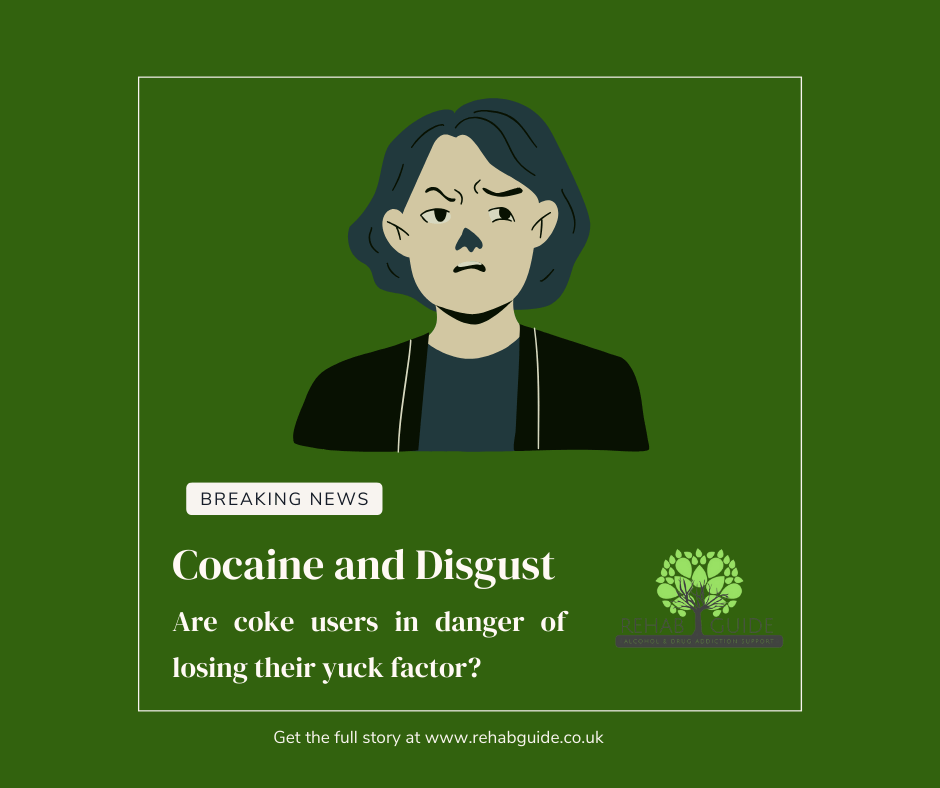Studies on disgust tested the biological reaction of cocaine users and non-cocaine users to pictures people would consider disgusting – diseases, injuries, bodily fluids and rotten, dirty food.
Blood, faeces, rotten food and disease, there are lots of things people find disgusting, and it does vary from person to person. Disgust is good for us, and at the heart of that revulsion is survival.
Our brains show disgust to protect us from diseases and infections that many of these things can cause. The instinct to stay away from these things could and does save lives. Not letting people wipe their noses on your jacket will undoubtedly mean fewer viral infections and keeping people with infectious diseases clear, too.
But what happens when we turn this sense down? Studies have shown that it is just what cocaine does to our feelings of horror and disgust.
What Did the Studies Test?

After looking at the pictures, their blood was tested to see if there was anything significantly different. The most interesting alteration was the level of cytokine interleukin-6, an inflammatory regulator.
This is a way the body adjusts to fight off infections. Previous tests showed that when someone who took cocaine had an infection, the amount of cytokine interleukin-6 was less than normal. Scientists believe this may be part of the reason why cocaine users find it harder to shake infections.
Cocaine and Infection
It was already well known that it is harder to fight off infection and other illnesses if you take cocaine, but these findings mean coke users are more likely to get them, too.
For years, the medical community and social services have been trying to find ways to reduce the number of serious illnesses and deaths from infections such as hepatitis C and HIV in cocaine users.
Lots of effort and money have been put into supporting clean needles, sexual protection and access to medical help. The improvement has been frustratingly small, and these findings might indicate why.
If people who take cocaine are simply more likely to get an infection due to problems with hygiene, then that is another hurdle to take on.
“The best option, of course, would be to stop people from taking cocaine entirely.” Says John from a leading London rehab centre specialising in treating cocaine addiction. “One thing we try to do in rehabilitation is discuss things they have done or felt while using cocaine. Mostly, people know they let their health and hygiene go. We also teach self-care, which is something so many addicted people lose along the way.”

Rehabilitation, Not Just Detox
A priority for so many people who want to stop using cocaine is a safe space to detox. They want to be away from the temptation and lifestyle that started them taking drugs and somewhere safe and calm to recover physically.
Rest and detox are vital to cocaine users, but missing out on rehabilitation can be a huge mistake. In part, it is working out why you feel the need to use cocaine but also working out ways and reasons to stop yourself.
Retraining your disgust for dangerous and risky things takes time and effort, but it could help you or a loved one to leave cocaine addiction and misuse behind and, in doing so, save their life.

Fiona Kennedy is an editor and content manager who earned her Master of Arts degree from the University of Edinburgh, followed by completing the CELTA Cambridge teaching course in English. She has worked as an editor, writer and personal coach. Coming from a family deeply involved in the rehabilitation and support of those suffering from addiction, she is passionate about helping people to understand and take control of their dependences. Fiona’s other passions include travelling and taking part in community projects.


